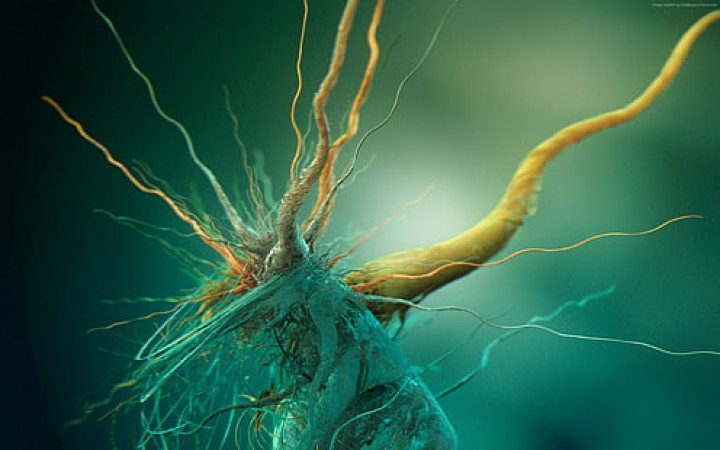
The world of microbes, despite its minuscule size, is a captivating and essential aspect of our lives. These tiny organisms, invisible to the naked eye, play a vital role in shaping various ecosystems and influencing human life in remarkable ways. In this article, we will delve into the intriguing realm of microbes, exploring their diverse functions, impact on the environment, and their significance to human health.
What are Microbes?
Microbes, short for microorganisms, are microscopic living entities that exist all around us. They include various groups, such as bacteria, archaea, fungi, protists, and viruses. Despite their size, microbes are incredibly diverse, with each group having distinct characteristics and functions.
The Diversity of Microbes
Bacteria
Bacteria are among the most abundant and ancient life forms on Earth. They come in various shapes and sizes and can be found in almost every environment, from deep ocean trenches to hot springs.
Archaea
Archaea are similar to bacteria in size and appearance, but they have fundamental genetic and biochemical differences. They thrive in extreme environments, such as hydrothermal vents and acidic lakes.
Fungi
Fungi are essential decomposers in ecosystems, breaking down organic matter and recycling nutrients. They also include various familiar organisms like mushrooms and yeasts.
Protists
Protists are a diverse group of eukaryotic microorganisms, encompassing a range of single-celled organisms like algae and amoebas.
Viruses
Viruses are unique entities that straddle the line between living and non-living. They cannot carry out metabolic processes on their own and require a host cell to replicate.
Microbes and Ecosystems
Microbes play crucial roles in ecosystem functioning, contributing to processes such as nitrogen fixation, decomposition, and food chains.
Nitrogen Fixation
Certain bacteria have the extraordinary ability to convert atmospheric nitrogen into a form that plants can use, enriching the soil and supporting plant growth.
Decomposition
Microbes, particularly fungi and bacteria, are nature's recyclers, breaking down organic matter and releasing nutrients back into the ecosystem.
Food Chains and Webs
Microbes form the foundation of many food chains, serving as primary producers or breaking down organic matter for consumption by larger organisms.
Microbes in Medicine and Health
The study of microbes has revolutionized medicine and health, shedding light on the complex relationship between microbes and the human body.
Gut Microbiome
The human gut hosts trillions of microbes that play a crucial role in digestion, nutrient absorption, and immune system regulation.
Probiotics and Prebiotics
Probiotics are beneficial live microbes that can be consumed to confer health benefits, while prebiotics are compounds that support the growth of beneficial microbes.
Fermentation
Microbes are involved in the fermentation process, producing various foods and beverages such as yogurt, cheese, and beer.
Microbes and Biotechnology
Microbes have become indispensable in biotechnological applications, offering solutions to various industrial and environmental challenges.
Industrial Applications
Microbes are used in industries to produce enzymes, antibiotics, and other valuable compounds.
Genetic Engineering
Scientists harness microbial genetics for gene manipulation and the production of genetically modified organisms (GMOs).
Biofuels
Certain microbes can convert organic matter into biofuels, offering a renewable and sustainable energy source.
The Role of Microbes in Climate Change
Microbes significantly influence global climate patterns through their involvement in carbon cycling and methane production.
Carbon Cycling
Microbes play a vital role in the carbon cycle, both by consuming and releasing carbon dioxide during various metabolic processes.
Methane Production
Certain microbes produce methane, a potent greenhouse gas that affects the Earth's climate.
The Human-Microbe Relationship
The human-microbe relationship is complex, impacting various aspects of our health and well-being.
Hygiene Hypothesis
The hygiene hypothesis suggests that reduced exposure to microbes in modern life may contribute to an increase in certain immune-related disorders.
Microbes and the Immune System
Microbes play a crucial role in shaping the development and functioning of the human immune system.
Unseen Allies: Microbes and Agriculture
Microbes play a vital role in agriculture, supporting plant growth and pest control through symbiotic relationships.
Symbiotic Relationships
Microbes form symbiotic relationships with plants, exchanging nutrients and promoting growth.
Plant Growth Promotion
Certain microbes produce hormones and nutrients that enhance plant growth and protect against pathogens.
Biological Pest Control
Microbes can be used as a natural and environmentally friendly alternative for pest control in agriculture.
Microbes and the Food Industry
Microbes are instrumental in the production and preservation of various foods.
Fermented Foods
The process of fermentation, driven by microbes, enhances the flavor, shelf life, and nutritional value of foods.
Food Spoilage
Some microbes are responsible for food spoilage, leading to challenges in food safety and preservation.
Microbes in Extreme Environments
Microbes demonstrate incredible adaptability and can thrive in extreme environments.
Extremophiles
Extremophiles are microbes that flourish in conditions of high heat, acidity, salinity, or pressure.
Astrobiology
The study of extremophiles has implications for the search for extraterrestrial life.
Ethical Considerations in Microbial Research
As our understanding of microbes advances, ethical considerations become increasingly important.
Biosecurity
With biotechnology advancements, ensuring biosecurity to prevent misuse of microbes is critical.
Dual-Use Dilemma
The dual-use dilemma pertains to research with potential applications for both beneficial and harmful purposes.
Future Prospects in Microbial Studies
The field of microbial research holds tremendous promise for the future, with potential applications in various fields.
Microbes, though invisible to the naked eye, are fundamental to life on Earth. They contribute to ecosystem stability, human health, agriculture, biotechnology, and even climate patterns. Embracing the world of microbes and harnessing their potential ethically could lead to groundbreaking advancements in science and a deeper understanding of our intricate relationship with these tiny organisms.
CJI DY Chandrachud Unwell, Won't Hear Today's Scheduled Matters: SC